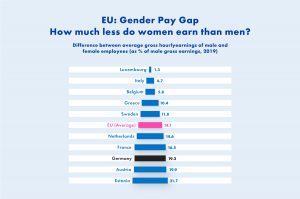Issue #84
Guten Morgen!
This week Germany broke another one of its self-made principles by voting to send heavy weaponry to Ukraine. Some rejoiced, some were outraged. Take a look at the House’s View to find out how all of this reflects on Chancellor Olaf Scholz. Otherwise, we bring you an exclusive leak from the Commission about what the EU has up its sleeve regarding drones, some intel about Germany’s most high-profile Shyster, and how Germany’s efforts on reducing energy dependency are going. We wish you a wonderful start to your weekend and happy reading!


Anna Christian
FIRST, SOME SOLID INTEL:
Schröder Lost in Russification
The former Chancellor of Germany and Nord Stream’s chairman of the Shareholders’ Committee Gerhard Schröder has made waves in Germany and beyond with a New York Times article published late last week. In it, he expressed no regret for pursuing a policy of seeking closer trade relations with Russia, even though this policy choice has left Germany deeply reliant on Russian gas. When asked, Schröder said: “I don’t do mea culpa”.
Schröder was instrumental in the building of Nord Stream pipelines that now deliver gas directly from Russia to Germany, thus circumventing alternative land-based pipelines travelling through eastern Europe. While he was still Chancellor, the contracts to construct Nord Stream were signed and Nord Stream 2 was built as he chaired the Shareholders’ Committee of Nord Stream.
In the interview, Schröder refused to comply with now frequent calls from within and outside of Germany to distance himself from Putin, arguing that such a move would make ending the war more difficult. He also expressed his determination to remain on all his board seats of Russian energy companies, which are deeply intertwined with the Russian state.
Now pressure is further mounting on Schröder’s party the SPD to kick him out. In a recent German poll, 64% spoke out in favor of an expulsion from the party. Schröder already relinquished his honorary citizenship in Hannover to avoid being stripped of the honor and he lost his membership at soccer club Borussia Dortmund for his refusal to condemn Putin’s actions. Money does seem to make the world go around…
Germany’s Road to Energy Independence
Germany’s traffic light coalition has been making sweeping moves to decrease their energy dependence as quickly as possible, following Russia’s invasion of Ukraine. In the past weeks, Robert Habeck, the Minister of the Federal Ministry for Economic Affairs and Climate Action (BMWK), has been travelling globally to secure oil and gas alternatives, particularly in the form of Liquified Natural Gas (LNG). His stops included Brussels, Washington, the UAE and Qatar, as he tries to balance his Green party’s ambition to free itself from fossil fuels with the stark reality that Germany is heavily reliant on oil and gas. He also needed to do away with the moral ambitions (common in his party) of not financially supporting questionable regimes, particularly in the Middle East. Habeck himself acknowledged, “moral purchases in the fossil fuel sector don’t really exist”.
In any case, Germany’s new strategy is starting to bear fruits. Habeck announced on Wednesday that 35% of German gas imports now come from Russia, down from 55% in February. This news came shortly after another announcement that Germany is “very, very” close to reaching independence from Russian oil, although Habeck later clarified that it will still take some time. While independence from Russian oil now seems feasible, the reliance on Russian gas will remain until at least 2024. The German government’s ambition is likely related to the latest moves from Moscow: on Wednesday, Russia stopped sending gas to Poland and Bulgaria after they refused to pay for the gas in Russian roubles (interestingly, Germany has notfaced the same consequences after refusing to pay in roubles). Habeck warned that a sudden halt of Russian gas would trigger a recession. Therefore, it appears that Germany still has a long road to travel until it achieves energy independence from Russia.
Future of Mobility: EU Looks Towards the Sky
According to the EU, (civilian) drones are the future. While it may sound a bit like science fiction, the EU is firmly convinced that drones, whether for delivery, person transport, inspections, or any other conceivable use-case, will become an integral part of life for EU citizens. Where are we getting this from? Well, this week we got our hands on a leaked 23-page report from the Commission outlining the recommendations for a “Drone Strategy 2.0.” This strategy, which is a legislative package planned for Q4 2022, will set the foundation for the EU’s drone economy to take off. If the EU manages to turn its “lofty” plans into reality, drones could bring in an additional 15 billion euros annually for the EU’s GDP. How do they plan to do this?
The first piece to the puzzle is convincing the public that drones are friends, not foes. This means showing people the positive use-cases drones could provide, like delivering a defibrillator before an ambulance arrives, saving baby deer from being mowed over during harvesting season, or guiding firefighting effortsduring large-scale blaze. The second step is creating a regulatory environment that invites innovative companies to set up shop in Europe. One example: simplifying application and approval procedures for automated flights. Third, setting up targeted funding to support emerging companies financially. Setting up infrastructure for a functioning drone economy can be expensive, so if the Commission covers some of the costs, companies would feel more inclined to bring their businesses to Europe… if you build it, they will come. Finally, given that many theoretical concepts in unmanned aviation still need to be tried in practice: testing, testing and more testing. This industry is still relatively nascent, and the EU can capitalize on learning lessons before any other country does. So, if you’re interested in unmanned aviation, feel free to ping us, and we’d be happy to share some more insights (and maybe even the report) with you.
TAKE A BREAK, GIVE YOUR EYES A REST.

Source: Eurostat
THE HOUSE’S VIEW: Pressure, Tanks, and U-Turns: Germany’s Delivery of Heavy Weaponry
The Saga
This Thursday, the German Bundestag, in a historical vote of 586 to 100, decided to send heavy weapons (anti-aircraft systems, armored vehicles) to Ukraine, and to set up provisions for sending the same type of equipment to eastern NATO allies. This vote in favor of delivering this heavy weaponry is, again, a monumental shift in German foreign policy. Even though every member of Chancellor Olaf Scholz’s party in the Bundestag, the SPD, voted for the motion, until a few days ago Scholz and his party were resolute about not going that extra step. The reasoning: fears that delivering heavier weapons would be crossing a red line and bring Russia’s wrath against Germany and its allies. Why did they change their mind? What does this mean for the German government? Let’s dive in, shall we?
Doing Opposition Correctly
Right off the bat, let’s get one thing out of the way: this positional change from the SPD to deliver heavy weaponry was not born out of moral convictions. It was pressure that made it all but impossible for the German government to decide any other way. The earliest and most outspoken pressure came from CDU/CSU (Merkel’s former party) who played their role as the opposition party in the Bundestag perfectly. Friedrich Merz, the CDU’s chairman and parliamentary group leader has been a bit of a firebrand in the Bundestag. He very cleverly submitted a motion for the delivery of heavy weaponry. Clever because he forced the governing coalition parties into taking a clear stance. And, at the same time (and I’m sure this isn’t at all intentional…) his own and his party’s political image is boosted. He opened the door for an intense debate on the topic, and many politicians, particularly from the coalition partners FDP and Greens, were more than happy to step through it.
The Coalition Pressure Cooker
Unsurprisingly, when the FDP had its national party congress last week, Ukraine was the topic du jour. With varying degrees of harshness, different high-ranking members of the party lamented Scholz and the SPD in general for not going to bat for Ukraine during this crisis. For example, the Chairwoman for the young liberals (youth arm of the FDP) Franziska Brandmann criticized how the Chancellor “doesn’t dare to say the word tank,” while FDP vice-chancellor Wolfgang Kubicki was “disgusted” by how SPD members were presenting themselves to the world. Party Chairman Christian Lindner then slightly softened the tone by agreeing with his party that heavy weapons are needed, but he and his party completely support the Chancellor. Even the Greens, who are traditionally a pacifist party, have abandoned their previous positions against weapons deliveries. Earlier this week, Green Party Chairman Omid Nouripour announced the traffic light coalition would present a motion in the Bundestag to deliver heavy weaponry. On that same day, SPD-Chairwoman Saskia Esken stated the complete opposite, that tank deliveries were not even up for debate. Three days later, Nouripour’s words became a reality and Olaf Scholz’s party was left looking foolish.
The House’s View: C’mon, Mr. Scholz
Just this morning (Friday), an opinion poll showed that 45 percent of (German) respondents are unhappy with Olaf Scholz’s actions in the ongoing war. And honestly, I can understand the frustration. For someone who ran an election with the genius PR slogan “those who order leadership, will get it [with me],” Olaf Scholz has really dropped the ball on communication these past few weeks. Time and time again, Scholz has missed valuable opportunities to shape the public narrative in his favor. Take a video posted on Twitter on Thursday for example (in German with English subtitles). In this video, Vice-Chancellor and Minister of Economic Affairs and Climate Protection Robert Habeck (Greens) got in front of a camera and talked directly to the German people for 4 minutes and 21 seconds. He explained exactly why he and his party (and the government as a whole) would be voting for the delivery of heavy weaponry. He told an emotional, personal story about his visit to Ukraine last year, and the individuals he met who might or might not still be alive now. He spoke openly about how this decision was weighing on his mind, but ultimately he felt it was the right one. While watching the video, I thought two things: “that is leadership done right” and “why the hell isn’t Scholz in front of that camera?” While I understand that effective governing is not about the optics, some form of communication would go a long way. Rather, we get radio silence from Scholz. He seems to have no qualms with letting the narrative about himself be controlled by others. As Chancellor of Germany, Olaf Scholz has a platform to speak and defend his and his party’s decision, so my advice: c’mon Mr. Scholz, use it.
LONG STORY SHORT:
- The Sky is the Limit: Inflation in Germany is breaking records, reaching the highest rate since 1981. Consumer prices are now 7.4% higher than in the same month last year.
- Slovenia leans Left: Slovenian Prime Minister Janez Janša’s party suffered a serious defeat on past Sunday’s parliamentary election. The newly formed left-leaning party “The Freedom Movement” won 40 of the 90 seats in parliament, and now the question on everyone’s mind is: can Janša form a governing coalition nonetheless?
- EU Ramp-up against Foreign Subsidies: The Committee on International Trade has adopted a draft law, which allows the EU Commission to investigate and counteract market-distorting foreign subsidies that are given to companies which want to acquire EU businesses or take part in EU public procurement.
WHAT’S ON OUR MINDS
Sacrificing with Resolve
Well, you cannot fight perception: Germany’s image as a brother in arms is destroyed for at least one generation. It will not matter that Germany delivers weaponry in a comparable range, that it harms Russia in more impactful ways than other economies, or that it commits to significantly more financial help than others. It also will not matter that Germany consequently plays its globally-suggested subordinate role in avoiding any kind of initiative and resolve if it comes to military solutions of conflicts. We will not be trusted. I can only imagine what the international reactions will be when Germany will again be in the spotlight of a bold deal during a financial or economic crisis (and it will), like

As you could read from Mats in The House’s View, the German government continues to be divided on the current crisis. This further perpetuates the image of a country that flip-flopped around when common solutions to common threats demand a vanguard leadership beyond domestic interests. But wait, who judges us here? The French almost voted Marine Le Pen who promised to put a stop to the French-German cooperation on many fields on the grounds of obvious “strategic differences”. The Brits, the Hungarians, the Polish, the Americans and many other “partners” have their well-known stories of putting their nation first. These approaches clearly did not help in creating anything that would solve the stalemate of, say, “Non-Europe”.

In what strategic mind, for example, will the insane costs of upholding 26 independent armies in the EU help to keep our cities safe? But beware! The mere mentioning of a future where one nation plans coherently along the reality of its dependence on its neighbors in a specific field, as uncontested matter of fact in many sectors, is seen as naïve EU-fanatic dream at the same time. My question: how far did that national interest thing take us during the past financial-, the refugee-, or climate crisis? How about in the creation of the “most competitive region of the world” or for ANY common challenge of our “sovereign” nations?

Ironically, when pursuing its national interest in securing a strong economy (and so on) for its citizens, Germany will be left with only one option for proving its international haters wrong: To give up the actual naivety of propelling a purely national narrative that would exist without sacrifices and follow through with any kind of initiative with resolve.


